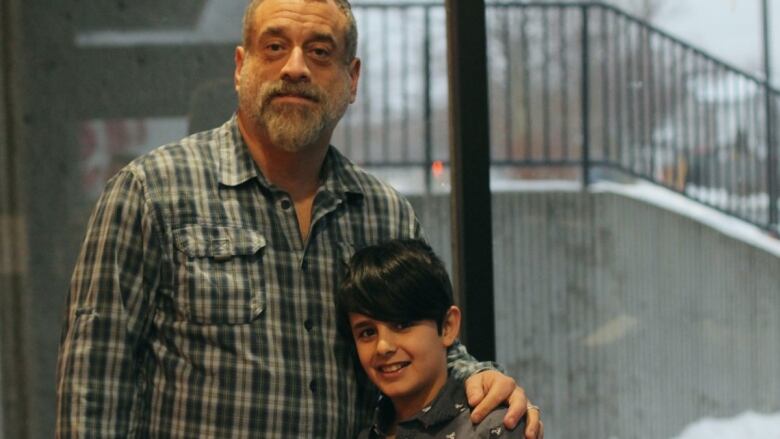New to English, but 11-year-old 'information sponge' is nailing school spelling bee
Marios Al Bazi came to Newfoundland with mom and brother 2 years ago as refugees

An 11-year-old boy who came to Canada as a refugee only two years ago with very little knowledge of English is now competitive in class spelling bees.
He's like a little information sponge. He learns everything as much as he can.- Peter Jackson
Marios Al Bazi, and hisfamily,originally from Iraq, were brought to St. John's by a group thatraised money to sponsor their immigration from Lebanon where they had livedfor the last several years.
It's been a productive two years for Marios, who's gone from barely being able to speak a word of English to placing fourth in his Grade 6 class spelling bee earlier this week.
"I got 28 out of 35 right and I had fun doing it. I enjoyed doing it," he told the St. John's Morning Show on Wednesday.

Spelling words like fluorescent, paralysis, despondency and instantaneous might be a challenge for any native English speaker. But thanks to his drive to learn, and help from mentor Peter Jackson, Marioshas quickly wrapped his head around words just like those.
"He's like a little information sponge. He learns everything as much as he can," Jackson said."We practice at home and I've also got him into reading the newspaper every once in a while."
The secret? Have fun!
While dedication helps him pick up things so quickly, Marios insists the key is just to spend time with friends and learnthrough having fun and not fall back on the crutch of relying onhis native language.
"Most Arabic people mostly just speak Arabic," he said."But I like to go in camps and stuff and speakwith English people, but not keep on speaking Arabic again and again."
With files from St. John's Morning Show












_(720p).jpg)


 OFFICIAL HD MUSIC VIDEO.jpg)
.jpg)



























































































